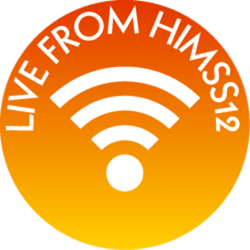I really enjoyed a recent lively discussion from various healthcare CIOs on the effectiveness of managing risk for financial purposes this week at the HIMSS12 conference in Las Vegas during a breakfast hosted by McKesson (San Francisco, Calif.). What mostly interested me was when the panel of four talked a great bit about how their organizations were using analytics to reduce costs and manage risks, agreeing the technology will play an integral part in the shifting healthcare model as providers become accountable care organizations.
Ken Armstrong, senior vice president of IT and informatics at the 11-hospital Fostoria, Ohio-based non-profit, ProMedica, talked about the strategy his organization has employed with analytics to manage risk. “We do have access to data that we’ve never had access to before,” Armstrong says. “We have access to digital data that we can pull from, which we do, and the results are staggering.”
Chuck McDevitt, VP and CIO of the Greenwood, S.C.-based , 414-bed teaching hospital, Self Regional Healthcare, talked about the importance of analytics when it comes to cutting costs for Medicare purposes. He said without analytics, it would be impossible to see how a patient flows through their entire healthcare community, and thus figure out where costs are coming in.
Larry Schunder, senior vice president and CIO of the Plano, Texas-based hospital capital and consulting firm, LHP Hospital Group, said through analytics clinicians are able to conduct case management on one platform and screen. “That happens through tying all of your data strings together, extracting information, and results, and then presenting that back to people who can take action on it.”
Schunder made a strong statement which really resonated. He said even though the healthcare systems landscape will be vastly different in 2020, it will be long before then that information and analytics will drive almost everything that is done in healthcare every day.” Analytics and data, and most importantly actionable information, are going to have to exist within the next 12-24 months to a more meaningful extent than it does today for us to be accountable,” he said.
There was some also specific discussions at the McKesson event about the essential places to use data analytics. Unsurprisingly, Armstrong talked about the use of analytics for reducing readmission. This particular topic is something I covered in an upcoming HCI feature for our top tech trends.
Throughout HIMSS, I’ve heard a lot of healthcare leaders stress the importance of data analytics for creating an accountable care environment. These were some strong offerings from this panel, which was joined by Rose Higgins, vice president of payer/provider at solutions at McKesson. I look forward to seeing how much of a focal point analytics continues to be in healthcare IT.


